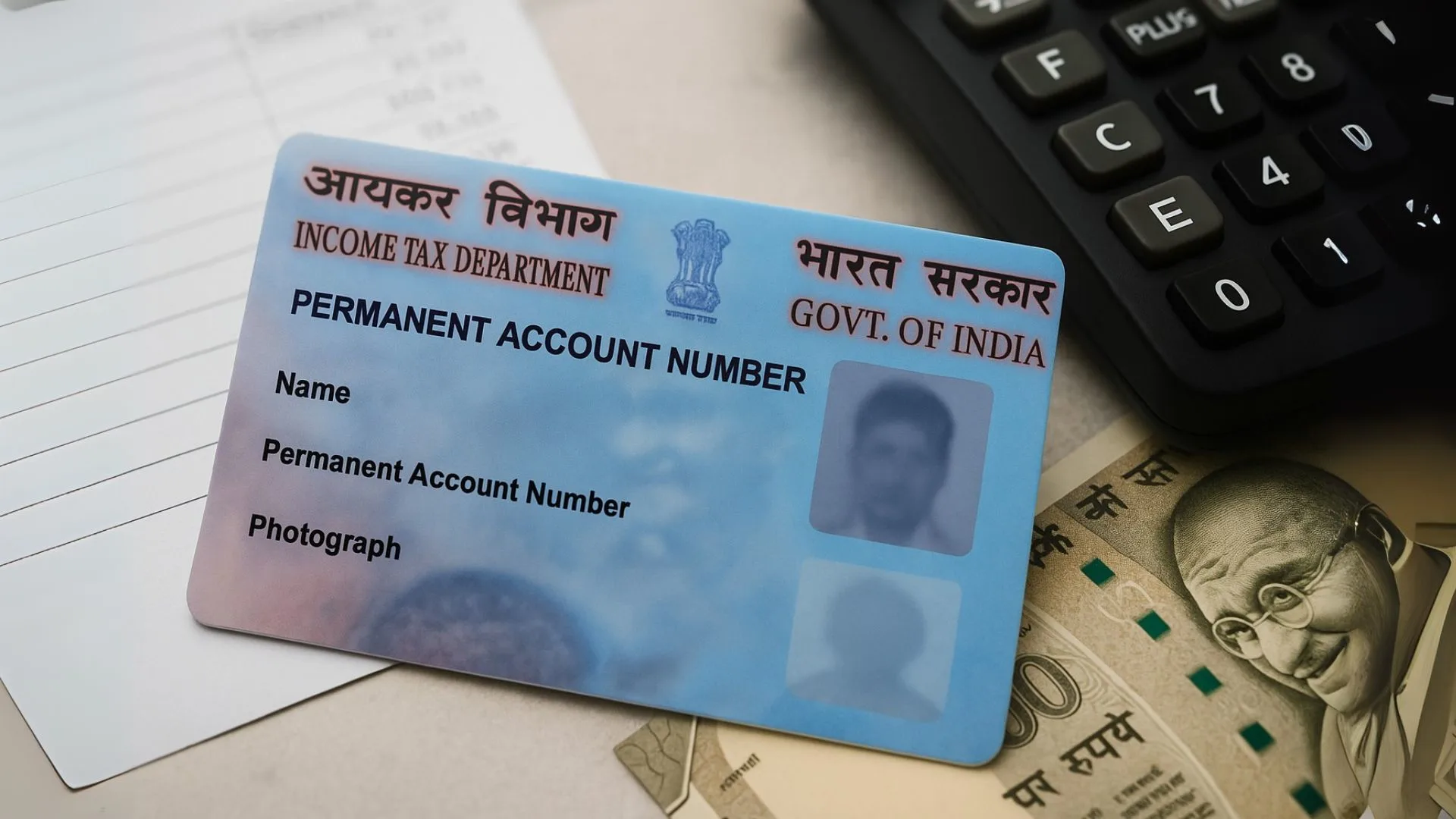
A PAN Number is a unique 10-digit alphanumeric code issued by the Income Tax Department of India. It acts as a universal identifier for all financial transactions that fall under the purview of the Income Tax Act. Whether you’re a salaried employee, a business owner, or a non-resident Indian, having a PAN is mandatory for various legal and financial processes.
Over the years, the PAN has become more than just a tax document. It is now an essential proof of identity for opening bank accounts, buying property, investing in securities, and even applying for loans. Without a valid PAN, many financial activities in India simply cannot be completed. This makes it an indispensable part of every taxpayer’s life.
What is a PAN Number?
A PAN Number is a unique 10-digit alphanumeric code assigned to individuals, companies, trusts, and other entities. The format consists of both letters and numbers, where each character holds specific meaning. For example, the first five characters are letters, the next four are numbers, and the last character is a letter.
The primary purpose of PAN is to track taxable transactions and prevent tax evasion. Since each PAN is unique, it ensures that all financial dealings of an entity are recorded under a single identifier. This helps the government maintain transparency and monitor compliance with tax laws effectively.
Why is PAN Important?
PAN is more than just a number on a card — it’s a gateway to India’s formal financial system. Without it, you cannot:
- File your income tax return
- Open a bank or demat account
- Purchase property above a certain value
- Invest in mutual funds, stocks, or bonds
- Apply for loans or credit cards
- Make large cash deposits or withdrawals
In short, the PAN Number ensures accountability in high-value transactions and builds a comprehensive financial history for every taxpayer.
Structure of the Unique 10-Digit Alphanumeric Code
The structure of a unique 10-digit alphanumeric code is not random — it’s designed to convey information. Here’s how it works:
- First Three Characters – Alphabetic series ranging from AAA to ZZZ.
- Fourth Character – Indicates the type of PAN holder (P for individual, C for company, H for HUF, etc.).
- Fifth Character – First letter of the PAN holder’s surname or name of the entity.
- Next Four Digits – Sequential numbers from 0001 to 9999.
- Last Character – Alphabetic check digit used for verification.
This unique pattern ensures that no two PANs are alike, helping avoid duplication or fraud."
Also Read: Deductions in Income Tax: A Complete Guide to Save More
How to Apply for a PAN Number
Applying for a PAN is straightforward:
- Online Application – Visit the NSDL or UTIITSL website.
- Fill the Form – Select the appropriate form for individuals or entities.
- Upload Documents – Proof of identity, proof of address, and proof of date of birth.
- Payment – Pay the nominal fee online.
- Verification – Your documents will be verified by the authorities.
- Dispatch – The PAN card is sent to your registered address.
For foreign citizens or NRIs, the process is slightly different, requiring notarized documents.
When is PAN Mandatory?
You must quote your PAN Number in situations such as:
- Filing income tax returns
- Sale or purchase of immovable property above ₹10 lakh
- Transactions over ₹50,000 in securities or bank deposits
- Purchase of foreign currency above certain limits
- Hotel bills exceeding ₹50,000
- Cash deposits exceeding ₹2 lakh during demonetization or special drives
These requirements make PAN a must-have for anyone participating in significant financial activities in India.
Linking PAN with Aadhaar
The government has made it mandatory to link PAN with Aadhaar to eliminate duplicate PANs & curb tax evasion. If the linkage is not done by the prescribed deadline, your PAN may become inoperative, leading to penalties. The process is simple and can be completed online through the Income Tax e-filing portal.
Consequences of Not Having a PAN
Not having a PAN can result in:
- Higher TDS rates on income
- Inability to open bank accounts or invest in financial products
- Penalties under the Income Tax Act
- Loss of eligibility for certain subsidies and benefits
Essentially, without a PAN Number, your participation in India’s formal economy becomes highly restricted.
Also Read: Hindu Undivided Family (HUF) – A Unique Way to Save Taxes and Build Wealth
Fraud Prevention and PAN
Because a PAN Number is a unique 10-digit alphanumeric code, it plays a major role in preventing financial fraud. The Income Tax Department uses it to cross-verify transactions & detect suspicious activities. This makes it crucial to protect your PAN details and report any misuse immediately.
PAN for Businesses and Entities
PAN is not just for individuals — businesses, trusts, and even foreign companies operating in India must obtain one. For example, a company without a PAN cannot:
- Open a current account
- Conduct high-value sales or purchases
- File corporate tax returns
- Sign certain legal contracts
This makes PAN equally critical for organizations as it is for individuals."
Future of PAN in India
With digital India initiatives, PAN is increasingly being integrated with other databases for real-time verification. Soon, its usage will extend beyond tax compliance to areas like property registration, education loans, and international remittances.
The aim is to make the PAN Number a universal financial identity, simplifying both compliance & everyday transactions.
💡 Want to apply for or update your PAN Number hassle-free? Visit Callmyca.com — we’ll handle the process end-to-end & ensure your PAN is valid, linked, and ready for all your financial needs.











